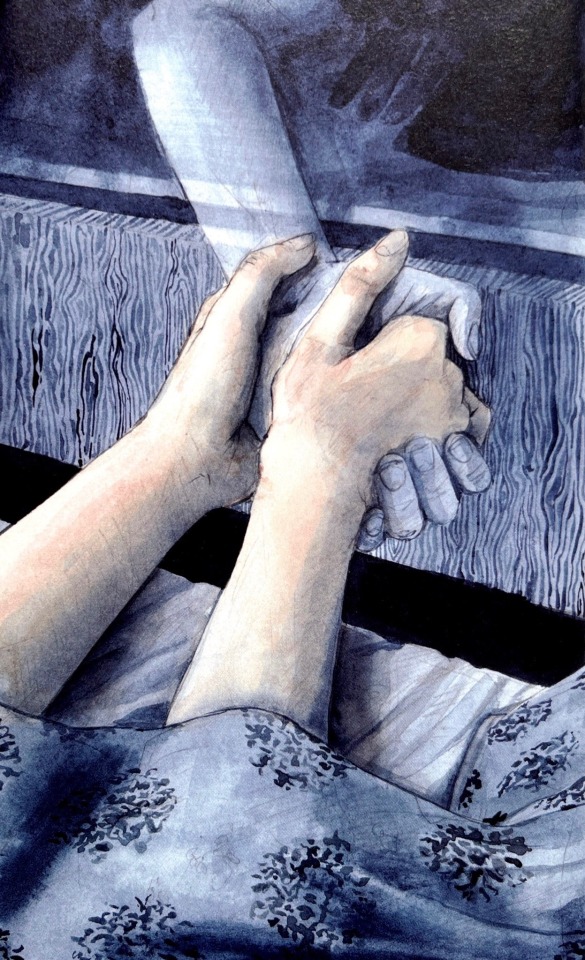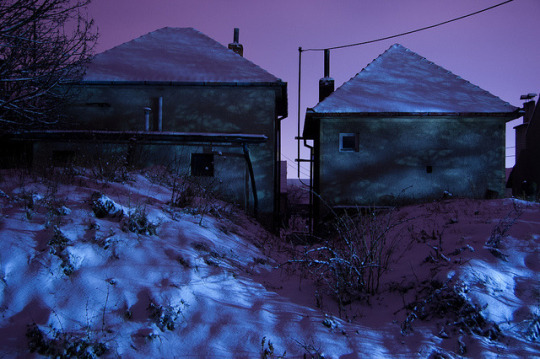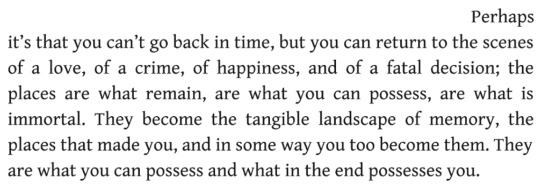#Rebecca Solnit
Explore tagged Tumblr posts
Text
"So many powerful forces conspire to try to convince us that we are basically selfish animals, that all we want is the the goods of private life, some safety, some sex and personal love and family, some nifty possessions. That’s the story of human nature we get told the most. But in fact most human beings are altruists and idealists, which is to say we want a lot more, we care about a lot more, we need a lot more to feel right with the world. We want justice and peace, want to live in a society that supports these things, want a relationship with nature, and we want that nature to be protected and thriving." -- Rebecca Solnit
1K notes
·
View notes
Text
This FB post by Rebecca Solnit is the thing keeping me sane this morning,so I’m sharing it here in case it helps you all, too:
“They want you to feel powerless and to surrender and to let them trample everything and you are not going to let them. You are not giving up, and neither am I. The fact that we cannot save everything does not mean we cannot save anything and everything we can save is worth saving. You may need to grieve or scream or take time off, but you have a role no matter what, and right now good friends and good principles are worth gathering in. Remember what you love. Remember what loves you. Remember in this tide of hate what love is. The pain you feel is because of what you love.
The Wobblies used to say don't mourn, organize, but you can do both at once and you don't have to organize right away in this moment of furious mourning. You can be heartbroken or furious or both at once; you can scream in your car or on a cliff; you can also get up tomorrow and water the flowerpots and call someone who's upset and check your equipment for going onward.
A lot of us are going to come under direct attack, and a lot of us are going to resist by building solidarity and sanctuary. Gather up your resources, the metaphysical ones that are heart and soul and care, as well as the practical ones.
People kept the faith in the dictatorships of South America in the 1970s and 1980s, in the East Bloc countries and the USSR, women are protesting right now in Iran and people there are writing poetry. There is no alternative to persevering, and that does not require you to feel good. You can keep walking whether it's sunny or raining. Take care of yourself and remember that taking care of something else is an important part of taking care of yourself, because you are interwoven with the ten trillion things in this single garment of destiny that has been stained and torn, but is still being woven and mended and washed.”
7K notes
·
View notes
Text










Daily Beast article on the Internet's reaction to a pre-existing condition making treatment not possible according to the algorithmic model.
Reminder to corporations and governments the world over: If you push people long enough, they'll respond however they see fit.
In America, that's usually done with lead and cordite but that is by no means set in stone. Rocks, by the way, are always a great tool to slay Goliaths of all sorts. If you get caught on camera just make sure you are ridiculously good-looking.
#united healthcare#health insurance#us health system#brian thompson#rebecca solnit#fuck corporate greed#plug your local scumbag
2K notes
·
View notes
Text

a field guide to getting lost, rebecca solnit
5K notes
·
View notes
Text





Pedro just posted these to his Instagram. I’m holding the last sentence very close to me.
2K notes
·
View notes
Text

Rebecca Solnit - goodreads
426 notes
·
View notes
Text







YOU THINK YOU LIVE IN A PLACE, BUT THE PLACE LIVES IN YOU: ON HAUNTED HOUSES
half·alive // fatima asghar // angie hoffmeister // richard siken // unknown // james baldwin // rebecca solnit.
#poetry#quotes#web weaving#webweaving#words#.w#excerpts#on haunted houses#half alive#fatima asghar#angie hoffmeister#richard siken#james baldwin#rebecca solnit
3K notes
·
View notes
Text
Hope locates itself in the premises that we don't know what will happen and that in the spaciousness of uncertainty is room to act. When you recognize uncertainty, you recognize that you may be able to influence the outcomes—you alone or you in concert with a few dozen or several million others. Hope is an embrace of the unknown and the unknowable, an alternative to the certainty of both optimists and pessimists. Optimists think it will be fine without our involvement; pessimists take the opposite position; both excuse themselves from acting. It's the belief that what we do matters even though how and when it may matter, who and what it may impact, are not things we can know beforehand.
Rebecca Solnit, from Hope in the Dark
1K notes
·
View notes
Text
You can’t go back in time, but you can return to the scenes of a love, of a crime, of happiness, and of a fatal decision; the places are what remain, are what you can possess, are what is immortal. They become the tangible landscape of memory, the places that made you, and in some way you too become them. They are what you can possess and what in the end possesses you.
Rebecca Solnit, from "The Blue of Distance (III)", A Field Guide to 'Getting Lost
#q#lit#quotes#essays#rebecca solnit#a field guide to getting lost#remembrance like a stairwell in the dark#reading#m#x
2K notes
·
View notes
Text
"To change our relationship to the physical world – to end an era of profligate consumption by the few that has consequences for the many – means changing how we think about pretty much everything: wealth, power, joy, time, space, nature, value, what constitutes a good life, what matters, how change itself happens. As the climate journalist Mary Heglar writes, we are not short on innovation. “We’ve got loads of ideas for solar panels and microgrids. While we have all of these pieces, we don’t have a picture of how they come together to build a new world. For too long, the climate fight has been limited to scientists and policy experts. While we need their skills, we also need so much more. When I survey the field, it’s clear that what we desperately need is more artists.”" -Rebecca Solnit. Emphasis added.
Artists are so so important. I've had people tell me they feel bad because, as an artist, they don't think they can contribute anything worthwhile to climate change. They're wrong.
We cannot build a future we cannot imagine. Artists are so important. Artists show us what could be - what we could be
#artists are so so important#climate change#climate crisis#climate news#climate action#quote#quotes#rebecca solnit#literature#climate fiction#clifi#science fiction#the arts#not news#hope#hope posting#solarpunk#hopepunk#excuse my pretentiousness in that last bit pls#art appreciation#artist appreciation#this goes for all types of artists btw!!
351 notes
·
View notes
Text
I disappeared into books when I was very young, disappeared into them like someone running into the woods.
Rebecca Solnit
#rebecca solnit#literature#spilled thoughts#poetry#poems and quotes#words#poem#quotes#lit#literacy#quotations#quote#books and literature#books and reading#books#escape#coping
1K notes
·
View notes
Text



Not only will this kill a bunch of people all over the world (just the poor at first so Trump and Musk are fine with that), but it will also really piss off the CIA (which is definitely not the healthiest option for anyone in politics).
#us politics#usaid#civil service#cold war#fuck trump#trump regime#things that will not make the cia happy#antifascist#rebecca solnit
591 notes
·
View notes
Text

[Hands Off Portland]
+
Yesterday was incredible. The official count is in — 5.2 million people joined the #HandsOff protest nationwide. So many are asking: what’s next? Mark your calendars: 4/19 is the next nationwide day of protest. Let’s go even bigger — our goal is to get 3.5% of America in the streets. Some media outlets are reporting only “tens of thousands” participated, but that’s no accident. Downplaying the turnout is a tactic to suppress momentum. But you were there. You saw the crowds. Even small red-district towns showed up in force. Don’t let them rewrite the story. It was a historic day — and we’re just getting started. We are proud of all of you — for many, this was your first protest, and you showed up with strength and purpose. Thank you to all the local authorities who helped keep everyone safe, and to the many military members and off-duty officers who attended and monitored the situation. Keep your signs, make new ones, and start preparing now. Let’s make history again on 4/19.
I need to see sources/methods before I take this number for a fact--but it's a really exciting number. Alt NPS says in the comments, "Estimates were based on reports from over 1,600 events nationwide. More than 21,000 coalition members traveled across the country to volunteer and help monitor safety at each location. These volunteers worked closely with local authorities to assess crowd sizes. Their reports were compiled and added together to arrive at the overall participation estimate."
(Rebecca Solnit)
56 notes
·
View notes
Text
Drifting across the vast space, silent except for wind and footsteps, I felt uncluttered and unhurried for the first time in a while, already on desert time.
-- Rebecca Solnit
(the French Alps)
#desert#space#silence#rebecca solnit#travel photography#france#alps#french alps#winter#snow#white#quote
202 notes
·
View notes
Text

Rebecca Solnit - Hope in the Dark - goodreads
67 notes
·
View notes
Text
In [fairy tales], power is rarely the right tool for survival anyway. Rather, the powerless thrive on alliances, often in the form of reciprocated acts of kindness—from beehives that were not raided, birds that were not killed but set free or fed, old women who were saluted with respect. Kindness sown among the meek is harvested in crisis.
— Rebecca Solnit, The Faraway Nearby
64 notes
·
View notes